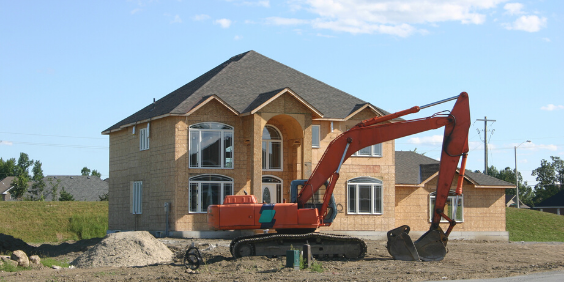Could municipalities in Saskatchewan ban fossil fuel heating in new homes?

Authors: Milad Alishahi and Geena Holding, summer law student
The City of Vancouver recently banned fossil fuel-based heating in new home construction in an effort to reach net-zero emissions by 2050. Climate targets and political pressure may lead other municipalities to consider placing similar restrictions on new developments. This could have significant implications for municipalities in Saskatchewan and other western Canadian provinces that rely on fossil fuels to combat extreme cold weather.
Provincial legislation and regulations take precedence over municipal bylaws where there is a conflict,[1] which means the Province can restrict the ability of municipal governments to pass bylaws banning the use of fossil fuels. Currently, there is no express prohibition on municipal bylaws banning the use of fossil fuels to heat homes within the Construction Codes Act (the CCA), the Municipalities Act, the Cities Act or the Planning and Development Act.
Vancouver passed its fossil fuel ban pursuant to the Vancouver Charter, which expressly grants the city the ability to regulate the construction of buildings where the conservation of energy or the reduction of greenhouse gas emissions is concerned.[2] These provisions also allow the city to regulate the installation and use of appliances using gas or oil for heating, including ranges and furnaces.[3]
No municipalities in Saskatchewan have been granted these special powers through provincial legislation. Instead, municipalities are granted a “general power” under the CCA[4] to pass construction bylaws, subject to the approval of the Minister of Government Relations. The CCA provides that the Minister has four options for approving a proposed building bylaw:
- approving the bylaw if it does not conflict with the CCA or its regulations
- not approving the bylaw if it conflicts with the CCA or its regulations
- approving the bylaw in part if part of the bylaw does not conflict with the CCA or its regulations and is severable
- approving the bylaw on the condition that council makes amendments to it where part of the bylaw conflicts with the CCA or its regulations.[5]
The CCA regulations adopt and apply the National Building Code of Canada (the NBC), which sets the minimum requirements for construction codes across Canada. According to the NBC, heating systems must be capable of maintaining an indoor temperature of not less than 22°C in all living spaces at the outside winter design temperature, which is adjusted for each region depending on climate.[6]
A municipal prohibition on fossil fuel-based heating may not, on its face, directly conflict with the CCA or NBC, but may raise concerns regarding the reliability and capability of alternative energy sources to maintain the required minimum heating standards in Saskatchewan’s harsh winter climates. Bylaws will not be approved if they fail to meet or exceed the minimum standards prescribed by the CCA and the NBC.[7]
The CCA does not explicitly require the Minister to provide reasons for its decision; however, copies of reviewed building bylaws will be returned with a letter of explanation from the Minister’s office.[8] If a development is proceeding without ministerial approval, the Minister may be entitled to conduct compliance investigations and seek redress through injunctive relief.[9]
Fossil fuel bans may also be introduced at the federal level through the NBC. The NBC must be adopted by a province to become law, and provinces may introduce their own regulations to meet their specific needs. Through the CCA, Saskatchewan is empowered to make regulations amending, repealing or replacing any provisions of the NBC.[10] Given the current flexibility of the framework and the acknowledgment of differing regional needs depending on climate, it is likely that provinces with harsher climates could legislate out of a ban on fossil fuel-based heating.[11] Saskatchewan could repeal and replace such prohibitions to ensure the regulations are in line with Saskatchewan’s needs.
To further complicate matters, Saskatchewan is a signatory to the Reconciliation Agreement on Construction Codes, and has agreed to not adopt any new variations or exceptions to the NBC after 2025, unless they are required to achieve a legitimate objective. Legitimate objectives include public security and safety, protection of human, animal or plant life or health, protection of the environment, consumer protection, and protection of the health, safety and well-being of workers. This could restrict the province’s ability to opt out of anticipated fossil fuel bans in the NBC, and any future amendments must be carried out with this requirement in mind.
With a move toward a standardized NBC and federal commitments on emissions, there are looming legal issues between municipal, provincial and federal governments respecting fossil fuel restrictions. Express provincial clarity will be needed to resolve future discrepancies and ensure municipalities understand their obligations with respect to national construction standards.
If you have any questions about the limits of municipal jurisdiction with respect to climate policy and bylaws, please contact a member of our Municipal group.
This article is of a general nature only and is not exhaustive of all possible legal rights or remedies. In addition, laws may change over time and should be interpreted only in the context of particular circumstances such that these materials are not intended to be relied upon or taken as legal advice or opinion. Readers should consult a legal professional for specific advice in any particular situation.
[1] See the Cities Act, SS 2002, c C-11.1, s 11; see also the Municipalities Act, SS 2005, c M-36, s 11; Northern Municipalities Act, 2010, SS 2010, c N-5.2, s 11.
[2] Vancouver Charter, SBC 1953, c 55, ss 306(1)(a).
[3] Ibid, ss 306(1)(o).
[4] CCA, supra note 4, ss 16(11).
[5] CCA, supra note 4, ss 17(6).
[6] Canadian Commission on Building and Fire Codes, National Building Code of Canada 2020, Vol 2, Division B, ss 9.33.3.1(1) [NBC].
[7] Building Bylaw Guide, supra note 8, p 13.
[8] Ibid, p 12.
[9] Saskatchewan Action Foundation for the Environment Inc. v Saskatchewan (Minister of Environment & Public Safety), [1992] 2 WWR 97 (SK CA) at para 24.
[10] BCR, supra note 10, ss 5(2).
[11] NBC, supra note 12, Vol 1, Division B, Appendix C.



